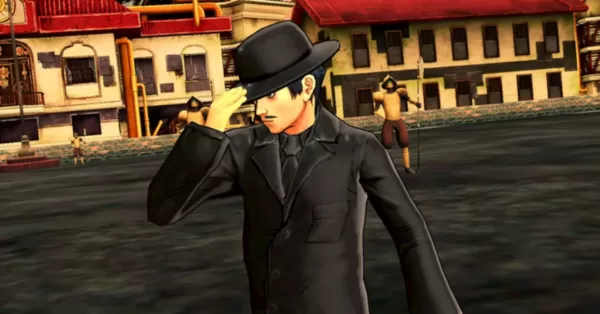PH Studio Ranida Games reveals what makes the Filipino gaming audience unique
Here's what makes Filipino gamers unique, according to Ranida Games.

Recently, we got some intriguing insights into the Filipino gaming audience courtesy of Ranida Games, a notable Philippine video game studio.
To be exact, we got to interview Ranida Games CEO and studio head Ben Banta along with head of business development Walter Manalo alongside other members of the Philippine gaming media. This interview was hosted by Xbox, and as such, it focused on the studio’s experience during Game Camp Asia.
Aside from sharing their learnings from Xbox’s program, we also had a lively discussion regarding Ranida Games’ milestones and future plans. After all, the studio was founded almost a decade ago and has since released a wide array of notable titles.
Given their years of experience, we were interested in getting their insight into the Filipino gaming audience. After all, the Philippines is a burgeoning video game market. Not only is the Philippines a fixture in many esports scenes in popular titles, but the country also often gets multiplayer betas of notable titles.
There’s also the fact that Filipinos are commonly seen in online video game discussions. This is echoed by Ranida Games.
Community Focused and Passionate

During our discussion, Banta and Manalo mentioned that Filipino gamers are a passionate audience with a penchant for forming strong communities for games that they like.
This makes sense given how many Facebook groups and Discord channels pop up for Filipino gamers of specific games. Even on sites like Reddit, there has been an increase in Filipino players sharing their thoughts about popular games in the country.
“Filipino players are very passionate and engaged,” said Manalo. “Once they learn about a game, they form a community out of it. And for us developers, we need to learn how to help form it and how to engage with the community.”
This is doubly important for Ranida Games as the studio is quite small, and as Banta and Manalo shared, their marketing budget can’t exactly rival that of games by major international publishers. As such, this community aspect of Filipino gamers is something that Ranida Games is keen on tapping.
Of course, Filipino players being passionate and tending to form big communities isn’t the only interesting insight that Ranida has learned during their years making games. They’ve also seen the big evolution of gamers in the country, both in terms of their gaming habits and preferences.
How the Filipino Gaming Audience Has Evolved Over the Years

The studio’s staff noted that Filipino gamers didn’t spend much on microtransactions in mobile games around a decade ago. Because of this, monetization was (and continues to be) one of Ranida Games’ major challenges.
Now though, more Filipino gamers are willing to spend for in-game items. It’s possible that the pandemic had a hand in this given that digital payment use has skyrocketed during that time.
While Pinoy gamers may be more willing to spend now, the flip side is that players in the country are now much more discerning quality-wise.
“The Filipino market is really hard to please, especially when the game that you’re releasing is also Filipino-themed,” said Banta. “We are often being compared to international titles, and we can’t really compete.”
Sadly, funding is an issue for many local video game studios. Even with the talent of the developers, the lack of funding means local games’ production value simply cannot reach the level of games made by international studios (that have budgets tens to hundreds of times bigger).
This is a major challenge for local studios, especially given the tendency to compare with much bigger games. For instance, Banta noted that they’ve received feedback about how their fighting game Bayani isn’t comparable to Tekken, or that they should make an NBA 2K-level PBA game.
Despite these challenges, Ranida Games’ team is aiming to fight on through creativity. As such, Banta and Manalo said that their experience over the years, coupled with what they learned from Xbox’s recent Game Camp means they’re up for the challenge.

